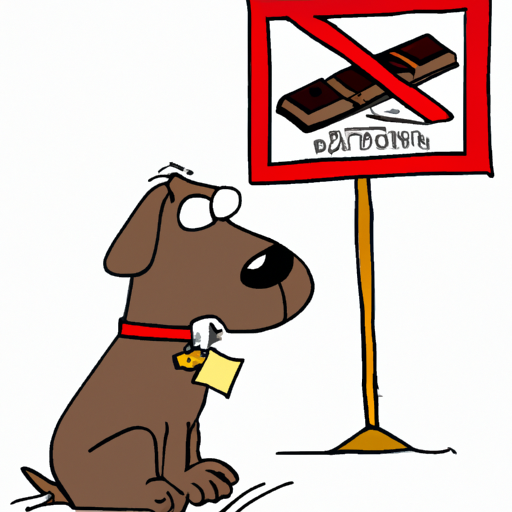Understanding Your Four-Legged Friend’s Dietary Needs
As a caregiver, your main concern is the well-being of those in your care. When it comes to your furry friends, you need to know that their dietary needs are vastly different from ours. You might think that a little treat here and there won’t do any harm, but did you know that some common foods can be deadly to dogs?
One such example is chocolate. Yes, you heard it right. That sweet indulgence that melts in your mouth and lifts your spirits can be highly toxic to your dog. But why is that so? Let’s delve into the science behind it.
Chocolate: A Sweet Treat or a Hidden Danger?
Chocolate contains two harmful substances to dogs: theobromine and caffeine. Both are types of stimulants that affect the central nervous system and cardiovascular system of dogs.
Here’s a simple table to highlight the levels of theobromine in different types of chocolate:
| Type of Chocolate | Theobromine Content |
|---|---|
| White Chocolate | Negligible |
| Milk Chocolate | 154mg/100g |
| Dark Chocolate | 1600mg/100g |
| Cocoa Powder | 2400mg/100g |
How Does Chocolate Affect a Dog’s Body?
When a dog ingests chocolate, their body metabolizes theobromine slower than a human’s would. This slow process allows theobromine to build up to toxic levels in their system.
- Nervous System: Theobromine can cause nerve function to be overstimulated, leading to symptoms like restlessness, tremors, and seizures.
- Cardiovascular System: It can push your dog’s heart rate to dangerous levels, potentially leading to irregular heart rhythms or even heart failure.
Recognizing Chocolate Toxicity in Dogs
As a caregiver, it’s crucial that you know the signs of chocolate toxicity. These include:
- Excessive thirst
- Diarrhea
- Rapid breathing
- Muscle rigidity
- Seizures
If you notice any of these signs in your dog after they’ve consumed chocolate, it’s essential to get them to a veterinarian immediately.
Preventing Chocolate Toxicity
Prevention is always better than cure. Here are a few tips to prevent chocolate toxicity in dogs:
- Store chocolate out of your dog’s reach.
- Educate family members about the dangers of feeding chocolate to dogs.
- During festive occasions, remind visitors to keep their chocolates away from your dog.
FAQs
Q: Can a small amount of chocolate kill a dog?
A: Depends on the type and quantity of chocolate, and the size of the dog. But it’s safer to avoid it altogether.
Q: What should I do if my dog eats chocolate?
A: If your dog eats chocolate, take them to a vet immediately.
Q: Is all chocolate equally bad for dogs?
A: Dark chocolate and cocoa powder are more harmful due to their high theobromine content.
Remember, as a caregiver, your vigilance can save your dog from potential harm. Keep the chocolates for yourself and treat your dog with pet-friendly treats instead.



